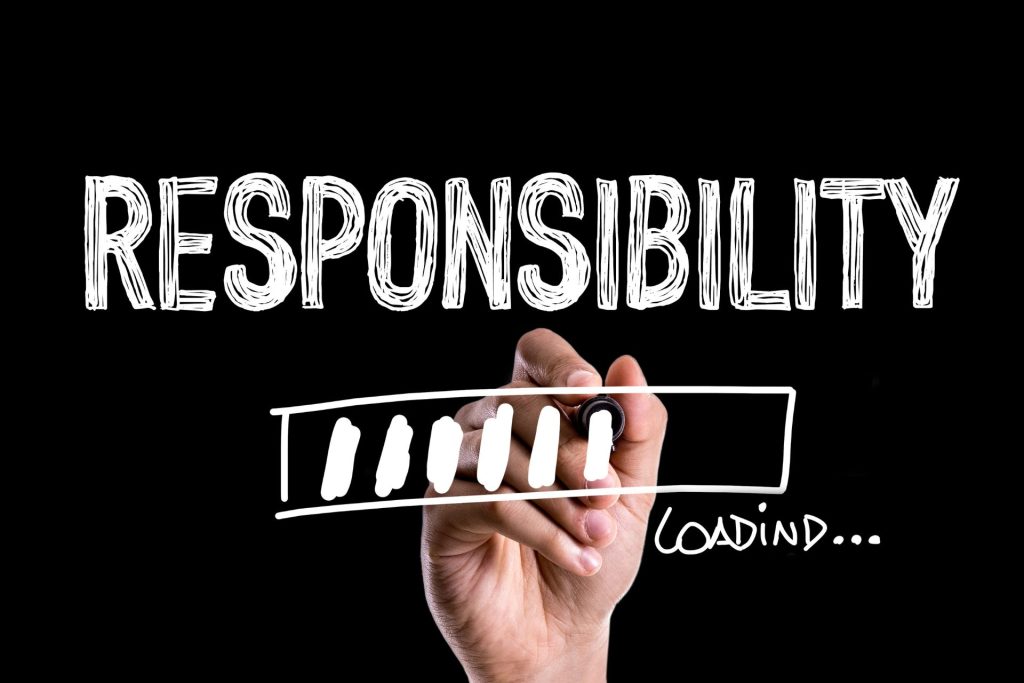Your brand is the foundation of everything you do as a business or other organisation. Much more than just your logo and colour scheme, it depicts and underpins everything from the product and service you offer to your consumer targets and customer service. It also incorporates your core values, your purpose, and your desire to make a difference.
Consumers have certain expectations of the brands they patronise. These may include:
- Credibility
- Integrity
- Transparency
- Consistency
- Authenticity
- Social participation
- Sustainability
- Engagement
Of paramount importance in 2023 (and likely far beyond), Brand Responsibility must be considered by business owners and marketers from the outset.

What is Brand Responsibility?
Brand responsibility refers to a brand “walking the talk” in terms of a social purpose or mission. Rather than being additional to the brand’s offering, it underpins its entire identity, goals, and delivery as a set of values that are intrinsic to the brand.
Brand responsibility is built on why the brand was created in the first place, how it serves its audience, and what matters in the bigger picture.
It relies upon:
Authenticity – you need to be completely transparent and show your customers and leads where your brand’s ideologies align and how you are “giving back” to society. This includes creating a social media image that aligns with your brand identity and is based on the highest social standards.
Authenticity encompasses credibility, continuity, integrity (commitment to your moral principles) and tangibly adding meaning to people’s lives.
Tenacity and Courage of your convictions to stand for what you believe in and be willing to, if necessary, disrupt traditions and change for a better way forward.
Commitment to Social Good – your brand needs to demonstrate that its care and value for community and society (people) and the environment (planet) are as robust as its interest in economic rewards or profit. Address global issues as a brand – and take a stance on issues such as climate change, racial justice, gender equality, income equality, equitable opportunity, affordable healthcare, social impacts on physical, mental, and emotional wellbeing, accessibility, misinformation, and others.
A 2022 ESG (environment, social, and governance) report by Glow[1] on consumer perceptions about how socially responsible different industries are found that the Food and Grocery sector in Australia was considered to be the most socially responsible – though it must do more to address environmental concerns (e.g., by better-managing waste and reducing the use of plastic).
Those industries deemed to currently be the least socially responsible included alcoholic beverage manufacturers, gambling and sports betting, social media, and mining/natural resource extraction.
Thanks to the influence of misinformation, the News and Media sector also performed poorly, as did the Australian banking industry and fast-food outlets.
Consumers have never been more aware of the implications of the choices they make – and this means higher expectations are placed on businesses, workplaces, governments, service providers, the media, and even charities.
Brand Responsibility Executed Well
Just three of many possible examples include:
- Specsavers & The Fred Hollows Foundation (TFHF) have worked in partnership since 2011. This includes but is not limited to the Specsavers Community Program, which makes a donation to TFHF for every pair of glasses sold. They also support a skilled volunteer program for optometrists to participate in remote or underserviced areas, sponsor awards for school students, and have support programs to provide Indigenous Australians with culturally-appropriate eyewear and care.
- JB Hi-Fi runs a workplace giving program for employees to voluntarily donate, via regular payroll deductions, to among ten charity partners, and the company matches these donations dollar-for-dollar.
- Coca-Cola is focused on sustainability and reducing its carbon footprint by 25% by 2030. This includes water stewardship, agriculture, product quality, packaging and climate. Their goal is that every bottle is 100% recyclable, be collected and recycled and that all water used for production be returned to the environment.

Tips for Rising to the Challenge
- Define your brand responsibility, defend it, and deliver it to your audience.
- Ensure all of your staff, employees, and contractors (while under your supervision) have a safe work environment and are paid an acceptable wage.
- Commit to, promote, and demonstrate support of charitable endeavours.
- Implement and promote ethical business practices.
- Champion equity, diversity, and inclusion.
- Implement and promote sustainable business practices wherever possible.
- Show, rather than tell, who you are as a brand and what you stand for. This includes providing captivating content via your website, email newsletters, social media profiles, and via other channels – content that is about much more than selling your product. Consider meet-the-team content, behind-the-scenes sneak-peaks, regular updates and other types of content to engage your audience and show how your products are made, how you foster an inclusive workplace, how you motivate and inspire your employees, how you promote sustainability, minimise waste, recycle, etc.
Other strategies include:
- Improve labour policy
- Reuse and recycle
- Reduce carbon footprint
- Fairtrade participation
- Community volunteering
- Philanthropic donations
- Diversity, inclusion, and equity
- Paid parental leave
- Work-life balance
You can’t afford to not take a public social stand on the values that matter to you – be they environmental, societal, or even political. (Be advised, however, that political discourse may be detrimental to many types of business.)
Socially responsible brands have enormous power to change consumer mindsets and ultimately the world. With conviction and action, brand responsibility helps to make a brand more cohesive – it is ingrained within the brand and requires ongoing commitment.
Get in Touch with Us at Dot-to-Dot Digital
Dot-to-Dot Digital can help you take your brand to the next level!
As a full-service digital marketing agency, we work with clients of all sizes across a wide array of industries throughout Australia.
We can work with you to understand what matters to you as a brand and help convey this across channels in your marketing and advertising campaigns.
How can we help you? Chat with a strategist to find out!
[1] https://www.glowfeed.com/2022/01/28/the-most-and-least-socially-responsible-industries-in-australia/










